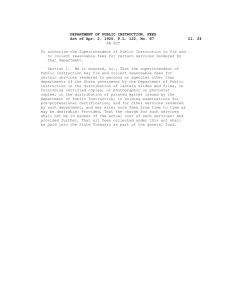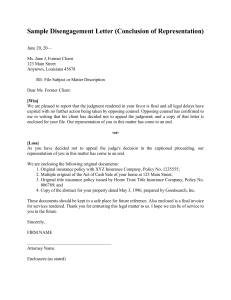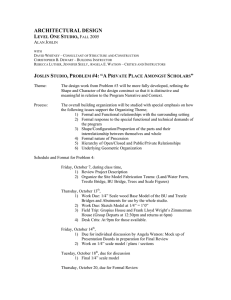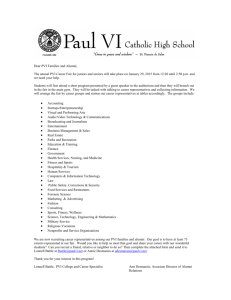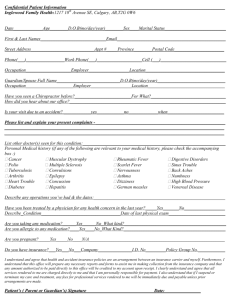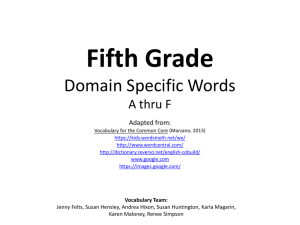24.231 Ethics – Handout 23 Peter van Inwagen, “The Incompatibility... and Determinism” (1)
advertisement
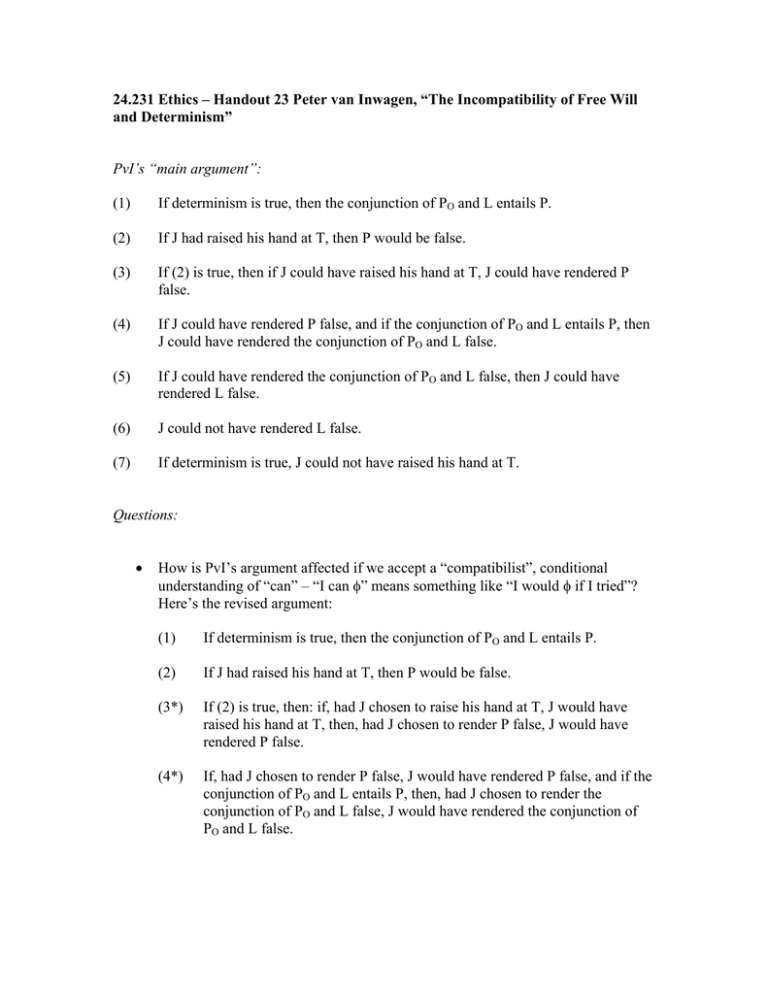
24.231 Ethics – Handout 23 Peter van Inwagen, “The Incompatibility of Free Will and Determinism” PvI’s “main argument”: (1) If determinism is true, then the conjunction of PO and L entails P. (2) If J had raised his hand at T, then P would be false. (3) If (2) is true, then if J could have raised his hand at T, J could have rendered P false. (4) If J could have rendered P false, and if the conjunction of PO and L entails P, then J could have rendered the conjunction of PO and L false. (5) If J could have rendered the conjunction of PO and L false, then J could have rendered L false. (6) J could not have rendered L false. (7) If determinism is true, J could not have raised his hand at T. Questions: • How is PvI’s argument affected if we accept a “compatibilist”, conditional understanding of “can” – “I can φ” means something like “I would φ if I tried”? Here’s the revised argument: (1) If determinism is true, then the conjunction of PO and L entails P. (2) If J had raised his hand at T, then P would be false. (3*) If (2) is true, then: if, had J chosen to raise his hand at T, J would have raised his hand at T, then, had J chosen to render P false, J would have rendered P false. (4*) If, had J chosen to render P false, J would have rendered P false, and if the conjunction of PO and L entails P, then, had J chosen to render the conjunction of PO and L false, J would have rendered the conjunction of PO and L false. (5*) If, had J chosen to render the conjunction of PO and L false, he would have rendered the conjunction of PO and L false, then had J had chosen to render L false, J would have rendered L false. (6*) It’s not the case that if J had chosen to render L false, J would have rendered L false. (7*) If determinism is true, then it’s not the case that had J chosen to raise his hand at T, he would have raised his hand at T. - • Are compatibilist interpretations of “can” tenable, and can they capture what we’re interested in when we talk about free will? - • Is this argument still sound? PvI suggests it is. He also suggests that if it isn’t – if any of the premises come out as false using the conditional analysis of “can” - then so much the worse for the conditional analysis of can: the premises of the argument are themselves more plausible than the conditional analysis. For example, if it should turn out to be true, on the conditional analysis of “can”, that we can violate the laws of nature (because we would violate them if we tried), then that just shows that the conditional analysis of “can” is untenable. So: Possible counterexamples: the case of animals, the red candy case, the brain tumor case… Should we accept all of PvI’s premises? In particular, is the paraphrase of (2) suggested by (3) accurate? And is (4) a sound principle? - - PvI says (4) is a special application of the more general principle: “If S can render R false, and if Q entails R, then S can render Q false.” He says this more general principle “seems to be analytic,” and he defends it by noting that, when Q entails R, if there’s some condition that S can produce that is sufficient for the falsity of R, then there’s some condition (namely, the same condition) that S can produce that sufficient for the falsity of Q. But we might worry about PvI’s more general principle. Let’s consider some possible counter examples… More generally, PvI suggests that on any plausible reading of “can”, and if determinism holds, for it to be true that we can do something other than what we do do, it must be the case that we can either violate the laws of nature, or change the past. And it’s obvious that we can do neither. But perhaps compatibilists are relying on a somewhat less implausible claim: for it to be true that I can do something other than what I do do, it needn’t be the case that I can violate the laws of nature, or change the past: it need only be possible for me to act in such a way that, had I acted in that way, either the laws of nature, or the past, would have been different than they are. (I don’t have to be able to cause this difference myself.) This possibility doesn’t attribute to me any magical powers. • What if, as modern physics suggests, the world is not deterministic? Does quantum indeterminism open up room for free will? • Does free will consist in the ability to do otherwise than we do? • Is free will required for moral responsibility? Can compatibilist “free will” support moral responsibility? (If we’re not responsible for who we are, can we be responsible for what we do?) Other accounts of free will and moral responsibility: - - David Hume, for example, defines liberty as “a power of acting or of not acting, according to the determination of the will.” (Animals seem to have free will on this account.) Perhaps free will consists in judgment-senstive choosing. (What about brainwashing?) MIT OpenCourseWare http://ocw.mit.edu 24.231 Ethics Fall 2009 For information about citing these materials or our Terms of Use, visit: http://ocw.mit.edu/terms.
